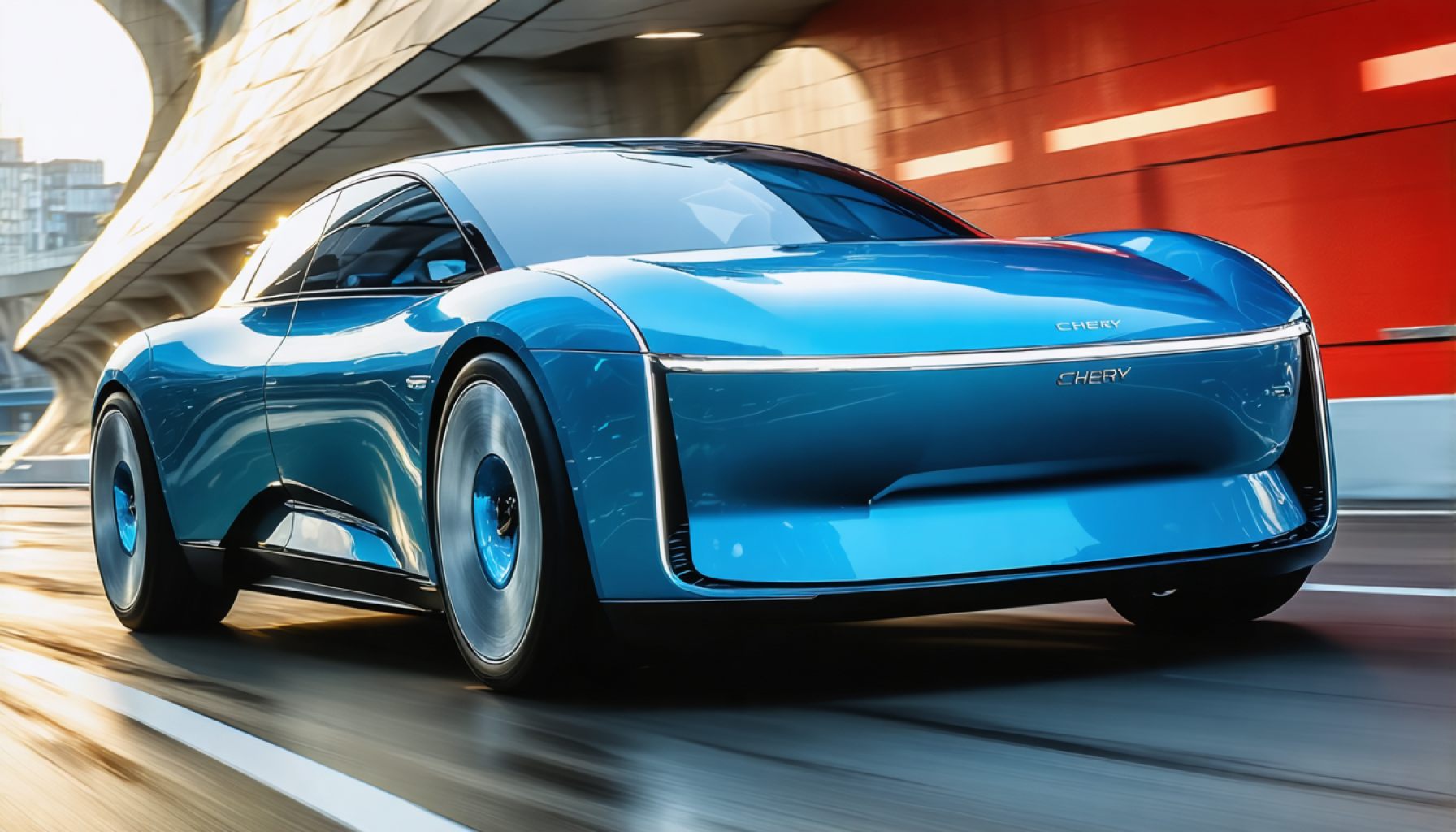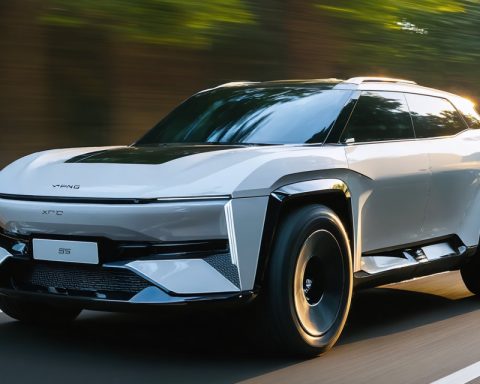- Chery Automobile Co. invests $1 billion in a new electric vehicle plant in Turkey’s Samsun province, aiming to spur Turkey’s role in the EV market.
- The facility will cover 1.5 million square meters and is expected to produce 200,000 vehicles annually, leveraging its strategic location near key shipping routes.
- Turkish President Erdoğan supports the project, highlighting a strategic alliance with Chery and the potential to capitalize on the customs union with the EU.
- This investment aligns with a global trend toward electrification, following similar initiatives by other Chinese firms like BYD Co.
- The plant symbolizes technological advancement and Turkey’s ambition to become a significant player in the global automotive industry.
- Turkey’s Industry and Technology Ministry played a crucial role in negotiations, marking a significant milestone in Turkey’s automotive journey.
A transformative wave is sweeping Turkey’s automotive landscape as Chery Automobile Co. sets the stage for a high-voltage venture in the region. The Chinese automotive giant has pledged a staggering $1 billion to establish an electric vehicle (EV) manufacturing plant in Turkey’s northern Samsun province. This monumental project is more than just a plant—it’s an emblem of Turkey’s burgeoning ambition to become a powerhouse in the EV market.
In an impressive display of diplomacy and future vision, Turkish President Recep Tayyip Erdoğan played host to Chery’s top brass at the ornate presidential palace in Ankara. Against a backdrop of booming potential and mutual interests, the President extended a warm gesture of recognition, affirming the strategic alliance between the nation and the automaker.
The forthcoming facility, sprawling over 1.5 million square meters, promises to produce 200,000 vehicles annually. Nestled near the strategic Black Sea port city of Samsun, this locale wasn’t chosen by chance. Its proximity to key shipping routes offers an unmatched advantage, allowing vehicles to sail to Europe and Central Asia, unlocking doors to untapped markets.
Chery’s leap into Turkey is not an isolated maneuver. It follows the tracks blazed by another Chinese stalwart, BYD Co., which also announced similar investment endeavors. Together, these moves signify a burgeoning trend: as the global automotive industry charges toward electrification, Turkey is emerging as a linchpin in this grand narrative.
Beyond the immediate economic implications, this venture serves as a beacon of technological and industrial evolution. While Turkey navigates its unique path outside the EU realm, its customs union status presents a golden ticket for Chinese automakers. By leveraging this arrangement, Chery and its compatriots can bypass some of the cumbersome EU tariffs, accelerating their penetration into lucrative European markets.
The inception of this plant has deep roots. For over a year, Turkey’s Industry and Technology Ministry has been in quiet negotiations with Chery, laying the groundwork for this audacious project. President Erdoğan’s earlier hints have now come to full fruition, casting light on the scale of ambitions shared by both parties.
In essence, Chery’s investment is a harbinger of Turkey’s electrifying journey to becoming a central player in the global electric vehicle arena. It also underscores the intertwining of geopolitical strategies and economic aspirations in fostering a sustainable future. As wheels start turning and plans take flight, Turkey stands on the cusp of a transformative era, poised to redefine its automotive identity on the world stage.
Exploring the Future: How Chery’s $1 Billion EV Plant in Turkey Could Revolutionize the Auto Industry
A Game-Changer in Turkey’s Automotive Landscape
The decision by Chery Automobile Co. to invest $1 billion in a new electric vehicle (EV) manufacturing plant in Turkey marks a significant turning point not only for the local economy but potentially for the global EV market. This bold move positions Turkey as a strategic junction between East and West, paving the way for significant economic, technological, and geopolitical shifts.
Strategic Importance of Turkey in the EV Market
Turkey’s unique geographical position and customs union with the EU give it a competitive edge. This allows manufacturers like Chery to easily sidestep EU tariffs, making penetration into European markets more feasible and cost-effective. Additionally, Turkey’s burgeoning industrial sector and skilled workforce make it an attractive destination for such investments.
Key Facts and Features of Chery’s New EV Plant
– Annual Production Capacity: The plant is expected to produce 200,000 vehicles each year, highlighting its significant capacity and potential impact on the market.
– Location Advantages: Situated near the Black Sea port city of Samsun, the facility benefits from proximity to critical shipping routes, facilitating exports to Europe and Central Asia.
– Sprawling Facility Size: Covering 1.5 million square meters, the plant provides ample space for advanced manufacturing capabilities.
How-To: Steps to Leverage Turkey’s Strategic Position
1. Understand EU Customs Union Benefits: Learn about how Turkey’s customs union with the EU can help streamline export processes into Europe.
2. Engage with Local Industry Networks: Companies should connect with Turkish industry networks to tap into local expertise and labor markets.
3. Plan for Logistical Efficiencies: Utilize Samsun’s port access to optimize shipping operations and reduce costs.
Pros & Cons of Chery’s Investment in Turkey
Pros:
– Economic Growth: Significant job creation and economic stimulation for Turkey.
– Market Access: Enhanced access to European and Central Asian markets.
– Technological Advancement: Promotes technology transfer and innovation in Turkey’s automotive sector.
Cons:
– Geopolitical Risks: Potential for political instabilities could impact long-term sustainability.
– Market Competition: As more players enter the EV market, competition could drive down prices and profit margins.
Industry Trends: A Growing Chinese Footprint in Global EV Production
Chery’s investment is part of a larger trend where Chinese automakers are expanding globally. Companies like BYD Co. are also investing heavily in international markets, signaling a shift towards global dominance in the EV sector.
Real-World Use Cases and Predictions
– Adoption of EVs in Turkey: As production ramps up, expect a rise in EV adoption within Turkey, influenced by more affordable and locally manufactured options.
– Increase in Export Volume: With increased production capacity, Turkey’s export volume of EVs to Europe is likely to amplify.
FAQs: Addressing Common Concerns
Why is Turkey attractive to Chinese automakers?
Turkey’s geographical position, customs arrangements with the EU, and relatively cheaper labor make it a strategic choice for accessing the European market.
What impact will this plant have on local economies?
The plant is expected to generate thousands of jobs and stimulate local economies through increased demand for housing, infrastructure, and services.
Actionable Recommendations
– Local Businesses: Start looking into partnering opportunities with Chery for supplying goods and services.
– Policy Makers: Encourage further foreign investments by enhancing economic policies and stability assurances.
– Stakeholders in EV Market: Analyze Turkey’s role as a potential logistic hub for expanding into further markets.
For more information, visit Chery International and International Trade Administration.














